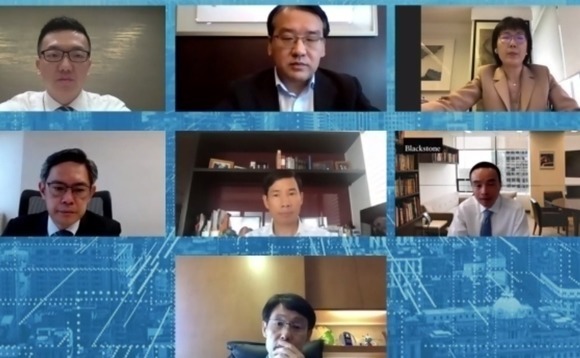
China rebound favors the few - AVCJ Forum

China’s economy has rebounded from COVID-19 faster than most others, but the pandemic has exposed a widening wealth gap in the country, industry participants told the AVCJ China Forum.
"Most companies that are in leadership positions in sectors seem to be doing pretty well, but the bottom half of society is suffering, especially the self-employed and SMEs [small and medium-sized enterprises]," said Chang Sun, head of China at TPG Capital. He believes strong stock market performance reflects the fact that indexes are biased towards larger companies.
Sun recalled a recent meeting with a strategist from JD.com's financial services unit who observed that there was considerable weakness among merchants on the e-commerce giant's platform. These businesses don't have ready access to credit, and they are experiencing very weak demand because mass-market spending power has dissipated.
On the other hand, luxury consumption appears to be flourishing as those with stable jobs are willing to spend money. Sun noted that high-end automakers in China have seen double-digit growth in the past six months, while their stock prices have risen considerably.
"When people buy apartments, they go for bigger units because they expect to be working from home more. Car sales are doing well because people are saying, ‘I am not traveling overseas for my holidays so I might as well buy a bigger SUV [for domestic trips],'" added Teck Sien Lau, CEO of Hopu Investments. "Consumption patterns are changing, but after all this, will the trends stay? It is very difficult to say."
Sun and Richard Li, CIO of Legend Capital, argued that government intervention is key to closing the gap. "The government can play an important role. It must offer more support to individuals and small business owners, while the platform-like companies must be careful about their profit and not grow too quickly," said Li. "They must also take action to support small businesses."
These macro trends have implications for where and how private equity investors deploy their capital. Regarding existing portfolio companies, the onus is on ensuring they take advantage of the post-COVID-19 environment.
Janine Feng, a managing director with The Carlyle Group emphasized that businesses must go on the offensive, noting that McDonald's China – a Carlyle investee – is pushing deeper into tier-three and tier-four cities. Other industry participants highlighted the importance of using efficiency and productivity gains as a competitive advantage when moving from stabilization to the growth phase.
Lau said that Hopu is working with its portfolio companies on prioritizing operational expenditure over capital expenditure as the country enters a period of slower growth. Understanding consumer and regulatory trends – and responding to them in a timely fashion – is critical to this. "We look for companies that can execute well and are very nimble," he said.
Latest News
Asian GPs slow implementation of ESG policies - survey
Asia-based private equity firms are assigning more dedicated resources to environment, social, and governance (ESG) programmes, but policy changes have slowed in the past 12 months, in part due to concerns raised internally and by LPs, according to a...
Singapore fintech start-up LXA gets $10m seed round
New Enterprise Associates (NEA) has led a USD 10m seed round for Singapore’s LXA, a financial technology start-up launched by a former Asia senior executive at The Blackstone Group.
India's InCred announces $60m round, claims unicorn status
Indian non-bank lender InCred Financial Services said it has received INR 5bn (USD 60m) at a valuation of at least USD 1bn from unnamed investors including “a global private equity fund.”
Insight leads $50m round for Australia's Roller
Insight Partners has led a USD 50m round for Australia’s Roller, a venue management software provider specializing in family fun parks.








